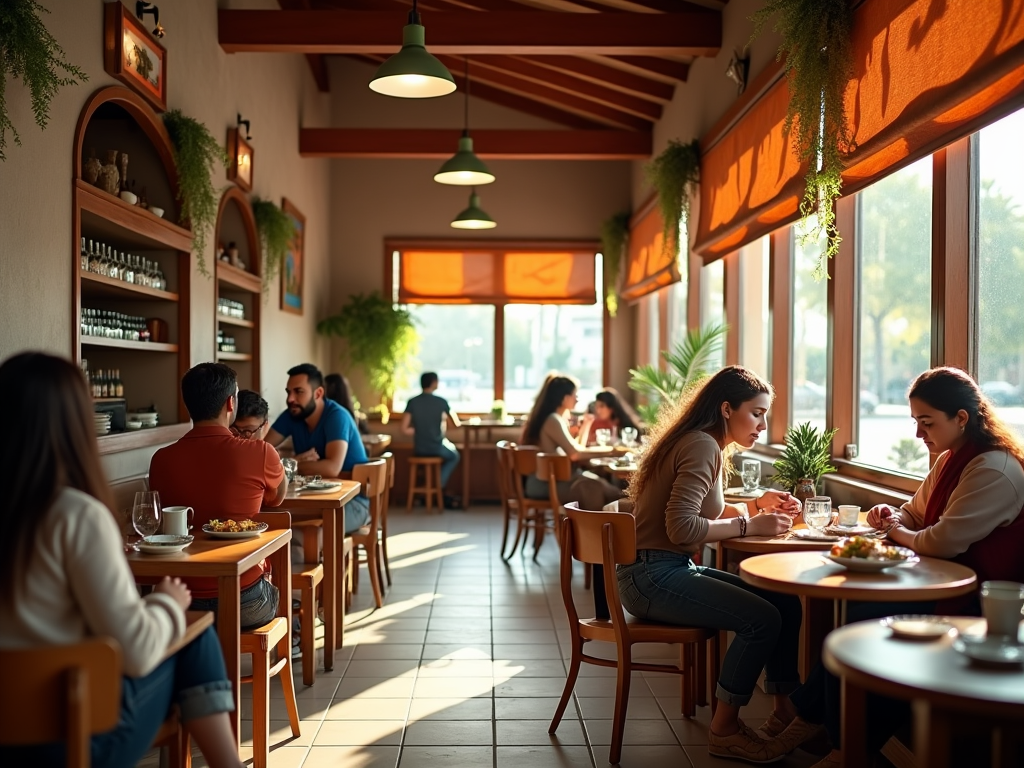Starting a small cafeteria in Dubai can be an exhilarating venture given the city’s vibrant culinary scene and diverse population. With the right planning, market understanding, and compliance with local regulations, you can turn your dream of owning a café into reality. This article will guide you through essential steps in establishing your own cafeteria, from crafting a business plan to navigating local regulations and attracting customers.
1. Create a Comprehensive Business Plan

The foundation of any successful business lies in a solid business plan. This document will not only define your vision but also serve as your roadmap as you proceed with the establishment of your cafeteria. A well-structured business plan should include the following key sections:
- Executive Summary: A brief overview of your business idea.
- Market Analysis: Research on potential clients and market trends in the UAE.
- Marketing Strategy: Plans for promoting your cafeteria and attracting customers.
- Financial Projections: Estimations of startup and operational costs, revenue forecasts, and profit margins.
- Operational Plan: Details on daily operations, staff requirements, and vendor management.
This plan will help you articulate your ideas and attract potential investors or lenders, ensuring that you have the necessary funding to start your cafeteria.
2. Understand Local Regulations and Licensing Requirements

Dubai has specific legal requirements for establishing a business, particularly in the food service industry. Before setting up your cafeteria, familiarize yourself with the relevant regulations by visiting the Dubai Department of Economic Development (DED) website and the Dubai Municipality. Here are the key permits and licenses you will need:
- Trade License: Obtain a trade license from the DED to legally operate your business.
- Food Safety License: Secure necessary health and safety permits through the Dubai Municipality.
- Café License: Apply for a specific café license as per your business model.
- Hygiene Training: Ensure that you and your staff have completed food safety training.
Ensuring that you meet all regulatory requirements is critical to avoiding penalties and ensuring a smooth operational start.
Location can significantly impact the success of your cafeteria. It’s essential to analyze various neighborhoods in Dubai to find a spot that attracts high foot traffic, especially from your target demographic. Consider the following factors when assessing potential locations:
- Accessibility: Is the location easy to reach? Are there public transportation options nearby?
- Competition: Research existing cafeterias in the area. Are you able to provide a unique offer?
- Target Market: Identify whether the demographic aligns with your concept, e.g., students, professionals, families.
- Rental Costs: Analyze the cost-to-benefit ratio of the rent in relation to expected sales.
Carefully weighing these considerations will help you secure a location that maximizes your chances of success.
4. Develop an Attractive Menu
Once your location is established, the next step is crafting a varied and appealing menu that resonates with your target audience. A well-balanced menu can differentiate your cafeteria from competitors and enhance customer retention. Essential components of your menu should include:
- Signature Dishes: Unique offerings that create a signature identity for your cafeteria.
- Seasonal Items: Familiar and fresh options that change based on the season’s availability.
- Beverage Options: A variety of drinks, including coffee, tea, and non-caffeinated choices.
- Health-Conscious Choices: Catering to the growing trend of healthy eating among Dubai residents.
Offering a versatile menu will cater to a wider clientele and encourage repeat visits, focusing on quality and creativity in each dish.
5. Promote Your Cafeteria
After setting everything in motion, it’s time to gain visibility for your newly opened cafeteria. A strong marketing strategy is crucial for attracting both locals and tourists in a competitive market. Here are a few effective promotional tactics:
- Social Media Marketing: Leverage platforms like Instagram and Facebook to engage your audience and showcase your food.
- Local Influencers: Partner with local food influencers to reach a larger audience.
- Special Promotions: Offer opening discounts or loyalty programs to entice customers.
- Community Events: Participate in local events and markets to increase brand visibility.
Implementing these promotional strategies will help build a loyal customer base and ensure long-term success.
Conclusion
Starting a small cafeteria in Dubai requires careful planning, thorough market research, and an understanding of the legal landscape. By developing a robust business plan, following regulatory guidelines, choosing a strategic location, creating a diverse menu, and implementing effective marketing tactics, you can pave the way for your cafeteria’s success. Becoming a part of Dubai’s thriving food industry is not just achievable, but can also be incredibly rewarding personally and financially.
Frequently Asked Questions
- What is the average startup cost for a cafeteria in Dubai?
The startup cost can vary widely based on location, size, and concept, but typically ranges from AED 100,000 to AED 500,000. - Do I need a local sponsor to start my cafeteria in Dubai?
Yes, if you are setting up a business outside of a free zone, you will require a local sponsor or partner. - How long does it take to obtain the necessary licenses?
It can take anywhere from 2 to 8 weeks, depending on the complexity of your application and compliance with regulations. - Can I serve alcohol in my cafeteria?
Yes, but you will need to obtain a separate license for alcohol service, and it’s subject to local regulations. - What are the common challenges in running a cafeteria in Dubai?
Challenges can include managing competition, fluctuating costs, and adhering to strict health regulations. Maintaining quality and customer service is also vital to your success.


